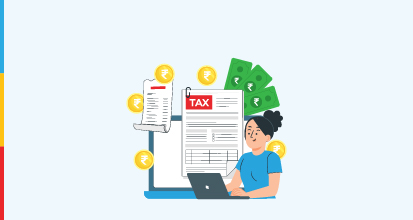- Tax Exemption: Income thatis legally excluded from tax, reducing your taxable income as per the Income Tax Act rules
- Tax Deduction: A claim that lowers taxable income through eligible investments or expenses under the Act
- Old Tax Regime: Tax system allowing most exemptions and deductions like HRA, LTA, 80C, and 80D
- New Tax Regime: Default tax regime with lower slab rates but fewer deductions and exemptions
- Section 80C: Deduction of up to ₹1.5 lakh for eligible investments like life insurance premiums, PPF, and ELSS
Written by : Knowledge Centre Team
2026-02-10
1074 Views
5 minutes read
Share










